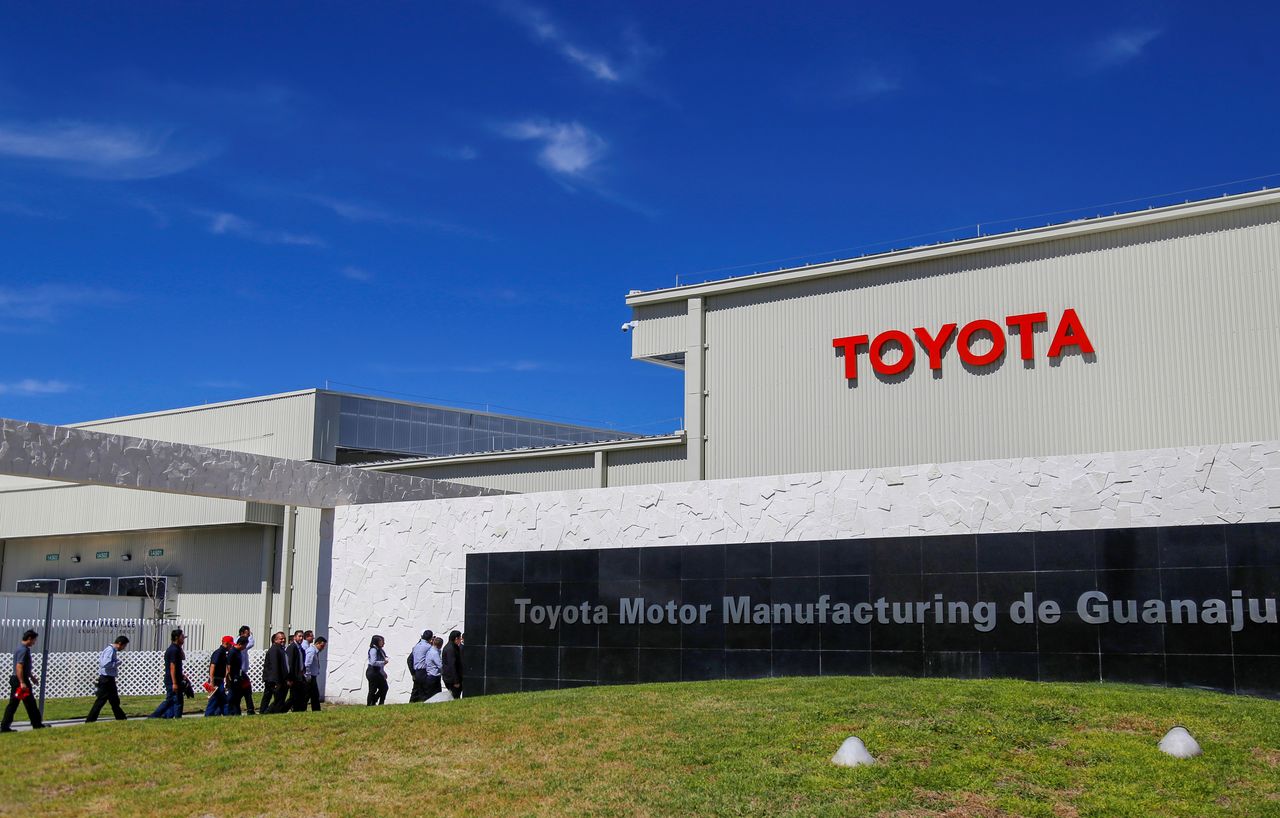Toyota to spend $13.5 billion to develop electric vehicle battery tech by 2030
Newsfrom Japan
- English
- 日本語
- 简体字
- 繁體字
- Français
- Español
- العربية
- Русский

FILE PHOTO: Employees walk at the Toyota Motor Corp new plant in Apaseo El Grande in Mexico's central state of Guanajuato, Mexico February 6, 2020. REUTERS/Sergio Maldonado
By Tim Kelly
TOKYO (Reuters) - Toyota Motor Corp said on Tuesday it expected to spend more than $13.5 billion by 2030 to develop batteries and its battery supply system, in a bid to take a lead in the key automotive technology over the next decade.
The world's largest automaker by volume, which pioneered hybrid gasoline-electric vehicles with the popular Prius, is moving rapidly to deliver its first all-electric line-up next year.
Considered a leader in developing batteries for electric vehicles, Toyota said it aimed to slash the cost of its batteries by 30% or more by working on the materials used and the way the cells are structured.
"Then, for the vehicle, we aim to improve power consumption, which is an indicator of the amount of electricity used per kilometer, by 30%, starting with the Toyota bZ4X," Chief Technology Officer Masahiko Maeda told a briefing, referring to an upcoming compact SUV model.
The company is also the front runner to mass produce solid-state batteries - a potential game changer for automakers because they are more energy dense, charge faster and are less prone to catching fire. If developed successfully, they could replace liquid lithium-ion batteries.
While it was still struggling with the short service life of these cells, Maeda said there was no change in Toyota's target to begin manufacturing solid-state batteries by the mid 2020s.
"We are still searching for the best materials to use," he said.
Efforts to mass produce solid-state batteries have stumbled as they are expensive to manufacture and are prone to crack when they expand and contract during use.
Toyota also planned to use solid-state batteries in hybrid electric vehicles such as the Prius, it said.
Volkswagen, the world's second-largest automaker, said on Tuesday it might have to spend more to deliver its planned transformation towards autonomous driving and EVs.
The German firm, which plans to invest 150 billion euros ($178 billion) in its business by 2025, has repeatedly said it could fund this transition based on current cash flows.
($1 = 109.8500 yen)
($1 = 0.8429 euros)
(Reporting by Tim Kelly; Writing by Sayantani Ghosh; Editing by Edwina Gibbs and Edmund Blair)
(c) Copyright Thomson Reuters 2021. Click For Restrictions -
https://agency.reuters.com/en/copyright.html